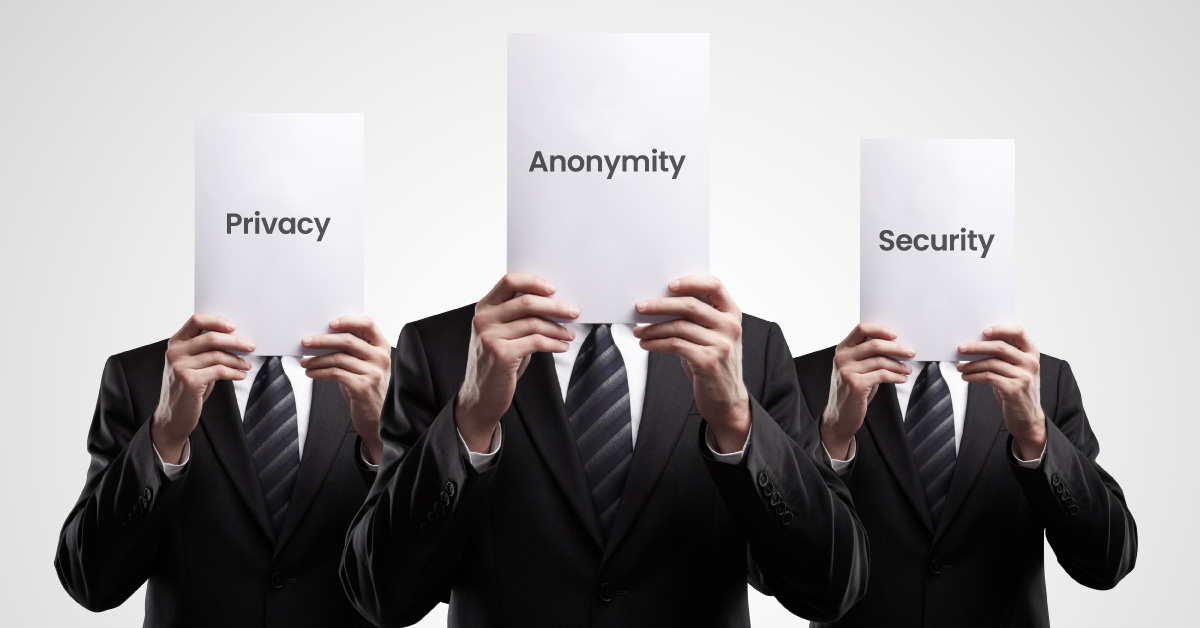Privacy, anonymity, and security are three of the most important concepts to understand when using the internet. But while most treat them as synonyms for having a safe digital presence, they don’t mean the same thing. And you should prioritise one over the other depending on your online demands.
To begin with, there is overlap between the three concepts. You will have privacy if you are secure, and you will have privacy if you are anonymous. However, each of these terms has a distinct meaning.
- Privacy: Some information, such as your activities, should be kept private. For instance, messaging friends privately so that only know who sent the message, but only they can read it.
- Anonymity: Anonymity is allowing people to see what you’re doing, but not that you’re the one doing it.
- Security: When a user is safe from harm, they are said to be secure. It means that no one can infect their device, gain access to it, interrupt their connection, or steal personal data in the digital world.
1. Privacy:
The ability to keep some data and information about yourself private and manage who and what has access to it is known as privacy.
Consider privacy as having an unsecured, password-free smartphone. Everyone around you knows who owns the phone, but they have no idea what’s on it. Even if they don’t use it to hurt or extort you, someone looking through your phone without your consent is a violation of privacy.
When it comes to online privacy, it’s all about how much personal information you can keep private whether surfing the web or using software on any of your devices.
2. Anonymity:
Anonymity means hiding your identity but not your actions. In the real world, you can conceal your identity by hiding your face and fingerprints. However, in the digital world, you can remain anonymous to block companies, and prevent them from gathering or retaining information that could be used to identify you.
Anonymity is vital for freedom of speech, especially for whistle-blowers. This is especially true in parts of the world where expressing certain thoughts and opinions may jeopardise your safety or jeopardise your profession and future.
3. Security:
Security is a set of precautions and measures for protection against potential harm to your personal information and reputation, and files directly or indirectly from malicious parties. You can practice online and data security by using antivirus software, encrypting important files, and using passwords to secure accounts and devices.
Wherever possible, we also advise using Two-Factor Authentication (2FA) on services.
Security incidents can cause direct harm to their victims. This could be a data breach that compromises passwords and other critical information, or a virus that damages your files and hardware—by turning off your device’s cooling fan, for example.
There are software solutions available that help retain data control and, as a result, provide privacy. Software such as Siccura is on a mission to give individuals and businesses a private and secure digital life. Whatever data is created, the solution encrypts it with an unbreakable code that only the content creator and intended recipients can access. Additionally, software solutions as Siccura have adopted a zero-knowledge principle, in which their business is to provide you with a service rather than sell you. Siccura gives you a complete visibility of what’s happening to your data at every stage. You always know who, what, where, when and more when it comes to your data.


